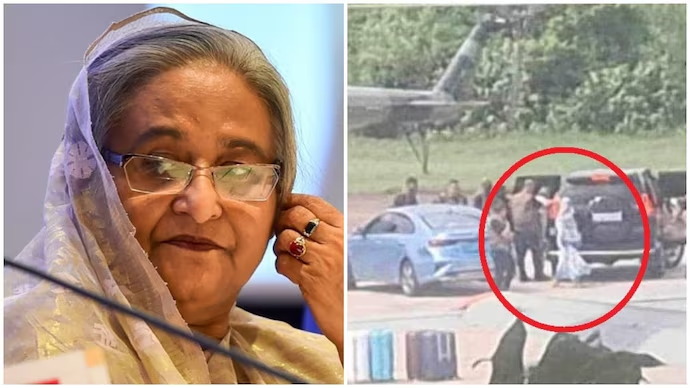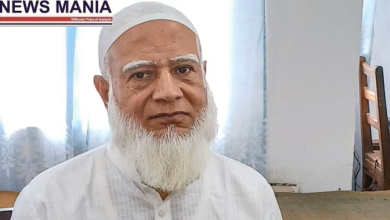Bangladesh PM Sheikh Hasina Resigns and Leaves Country Amid Violent Protests

News Mania Desk/Agnibeena Ghosh/5th August 2024
Bangladesh Prime Minister Sheikh Hasina has resigned and fled the country, media reports confirmed on Monday, following escalating violence and protests that have resulted in significant casualties. The unrest, some of the worst seen in the South Asian nation in over five decades, has intensified calls for her resignation.
As the violence peaked, demonstrators stopped ambulances to verify the presence of patients before allowing them to proceed. This act was part of the widespread protest demanding Sheikh Hasina’s resignation, which was sparked by student-led quota reform protests in Dhaka. The capital city has been the epicenter of these intense demonstrations.
The protests turned particularly violent on August 4, 2024. Demonstrators vandalized police boxes and engaged in clashes with law enforcement, further exacerbating the chaotic situation. Amidst this turmoil, Sheikh Hasina and her sister reportedly left the Prime Minister’s official residence, Ganabhaban, seeking a safer location, possibly in India. A source informed AFP that Hasina intended to record a video statement but was unable to do so due to the rapidly advancing protesters.
The situation in Dhaka deteriorated as approximately two million protesters marched towards Ganabhaban, demanding Hasina’s resignation. Following her departure, protesters stormed her residence, causing significant damage. This violent unrest is a continuation of a month-long reservation protest, which has seen increasing participation and intensity.
The Bangladeshi Army Chief, Waker-Uz-Zaman, had previously advised Hasina to step down amid the growing unrest. Following her resignation and departure, the army chief is scheduled to address the nation. This address comes in the wake of deadly clashes that claimed 98 lives in a single day, bringing the total death toll to over 300 since the protests began.
The protests initially began as a movement for quota reforms by students but quickly evolved into a broader demand for governmental change. The government’s response to the protests has been criticized for its heavy-handedness, contributing to the rising death toll and escalating violence.
The departure of Sheikh Hasina marks a significant moment in Bangladesh’s political landscape. As the country grapples with the aftermath of her resignation and the continuing protests, the future political direction remains uncertain. The army’s involvement and the potential for further violence add layers of complexity to the unfolding crisis.
International observers are closely monitoring the situation, with concerns about stability and governance in Bangladesh. The resignation of a sitting prime minister under such tumultuous circumstances is rare and indicative of the severe pressure and public dissatisfaction faced by Hasina’s administration.
As Bangladesh navigates this period of upheaval, the focus will be on how the government and the military handle the ongoing protests and what measures will be taken to restore order. The international community will likely play a role in supporting efforts to stabilize the country and address the underlying issues that have fueled the protests.
In conclusion, the resignation and departure of Prime Minister Sheikh Hasina amidst violent protests mark a pivotal moment in Bangladesh’s history. The nation faces significant challenges as it seeks to quell the unrest and chart a path forward. The coming days will be critical in determining the future trajectory of Bangladesh’s political and social landscape.
.






